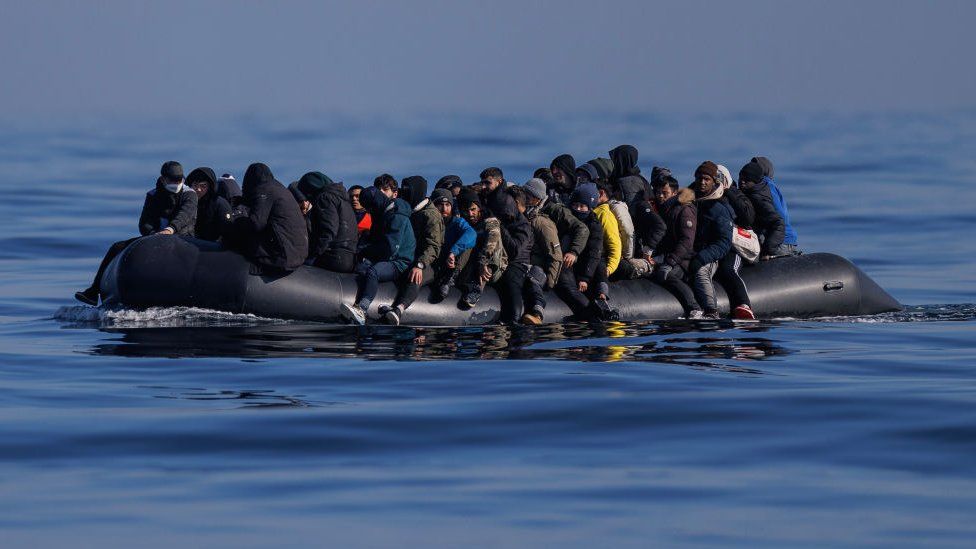Rwanda saga won't be over even when law is passed
- Published

Ten votes are expected in the House of Commons later on the government's plan to send some asylum seekers to Rwanda.
It is nearly two years since Boris Johnson first proposed the idea, to try to put people off attempting dangerous crossings of the English Channel in small boats.
The House of Lords has backed ten changes, or amendments, to the proposed new law.
The changes include allowing the courts to consider the safety of Rwanda and rewording the plans to allow legal challenges in cases where an individual feels they have been wrongly labelled an adult.
Government sources regard most if not all of the attempts to amend their plans as thinly disguised efforts to delay, disrupt or destroy them.
Conservative MPs are expected to overturn the Lords' amendments in a series of votes in the Commons this evening.
The bill will then return to the House of Lords, where it is scheduled to be debated again on Wednesday.
If it returns there with all of its amendments rejected, I'm told around five or six further amendments will be attempted to be attached to it again.
But, as the bill reaches these final parliamentary stages, two things are likely.
Firstly, a greater number of Conservative peers will be encouraged to turn up to back the legislation.
And secondly, opponents, particularly the independent, so-called crossbench peers, will begin to lose appetite for maintaining their opposition, conscious they are in the unelected chamber.
So, as soon as Wednesday, the bill may complete its parliamentary stages and be ready to become the law of the land.
Or there may be another round of so-called "ping pong" between the Lords and the Commons.
Either way, the government's Rwanda plan is likely to be law pretty soon.
So how long will it take after that before some asylum seekers are on a plane to Rwanda?
It won't happen immediately.
Estimates vary from a few weeks to a month or more.
On Monday, Rishi Sunak said: "I am still committed to the timeline that I set out previously, which is we aim to get a flight off in the spring."
That first flight departing will be a big symbolic moment.
The government will argue that despite everything thrown at the idea, they have pulled it off.
Most acknowledge privately it won't be enough for them to win the general election, but it might tempt some to give the Conservatives another look.
Critics, not least Labour, will continue to argue it is a political vanity project that will barely do anything to tackle the problem, as the numbers likely to be sent will be very small.
And there may be ongoing legal challenges which could lead to some people coming back to the UK, even after they have been sent.
The saga of Rwanda trundles on.
Related Topics
- Published6 March
- Published1 March
- Published1 day ago